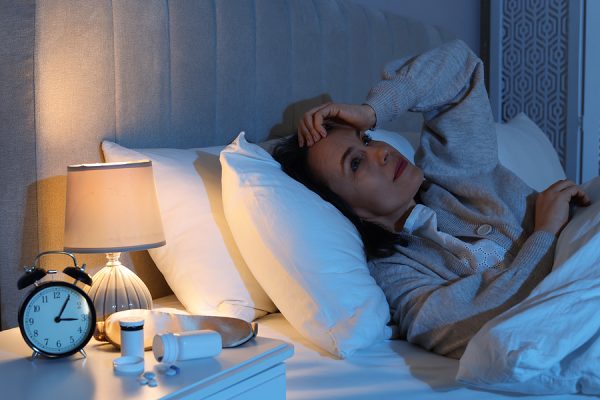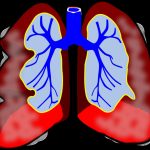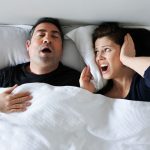As we get older our sleep patterns change. It just seems harder to get as much sleep as we used to. And it could be caused by any number of reasons.
One reason is that older adults sometimes produce less melatonin than they used to. This is the hormone that promotes sleep. So if you’re not producing enough of it, you’ll find it harder to fall asleep when you want to.
Another reason is that, once some people reach a certain age, they don’t go outdoors as much. Reduced levels of bright sunlight during the day can mess up your circadian rhythm. It also depresses evening melatonin production even further.
Or it could be something as simple as having too much activity going on in your brain. Many older adults become stressed out and can’t sleep because their adult children are having a rough time. Or maybe there are money or relationship problems. It’s easy to get stressed out when there is just too much to deal with.
Then there are all kinds of other things to take into consideration. The medications you are on, daytime napping habits, physical activity levels, caffeine intake and sleeping environment all come into play.
So it’s a crap-shoot. And it’s annoying. But is it a health concern?
Yes, it is! If you’re getting less than an optimal amount of sleep it can have a huge impact on your overall health.
Not Getting Enough Sleep Destroys Your Health
One of the scariest conditions associated with a shortened sleep cycle is dementia.
You see, your brain has a “drainage” system (the glymphatic system) that flips on when you fall asleep. This all-important system floods cerebral spinal fluid through brain tissue to wash away all the garbage accumulated during the day, including beta amyloid and tau.
But if you’re not getting enough sleep, these toxic substances will accumulate in your brain, increasing your risk of Alzheimer’s and dementia.
Sadly, getting six hours or less of sleep each night once you’ve hit or surpassed the AARP age of 50 is associated with a 30% increase in dementia risk
And here is something just as disturbing. Sleeping five hours or less a night when you’re in your 50s, 60s and 70s is linked to a 30% to 40% higher risk of developing two or more chronic, long-term health conditions.
That actually makes a lot of sense. After all, we’ve known for a long time now that shorter sleep times increase inflammation levels, boost your risk of a stroke or heart attack, raise your chances of diabetes, throw your hunger hormones out of balance, promote depression and increase your risk of an early death.
With all of those potential outcomes, it’s not surprising that multiple comorbidities would come into play when we don’t get enough sleep.
Still, it does remind us of how important it is to make every effort to get a full seven to eight hours a night. Luckily there are some strategies you can use to help you sleep well, night after night.
Healthy Habits for a Good Night’s Sleep
Get some outdoor activity every day. Physical activity will help wear you out. The more outdoor activity you get, the better your results will be. This is true regardless of what type of physical activity you participate in, or even the intensity of it.
Get high energy projects out of the way early in the evening. The longer you keep moving, the longer it will take to fall asleep.
Keep to a sleep schedule. If your sleep schedule is erratic, your body won’t know when it’s time to power down. Develop a regular sleep pattern by hitting the sack at the same time each night and getting up the same time each morning.
Make your bedroom a sleep-friendly environment. Your room should be cool and well ventilated. Make sure to shut down all electronic devices and dim the lights about an hour before bedtime to create a quiet atmosphere.
Avoid caffeinated or sugary beverages after lunchtime. You may think you’re immune to their stimulating effects… but that’s just wishful thinking.
Skip high-protein foods at your evening meal. They contain tyrosine, which triggers the release of dopamine and norepinephrine. These are both stimulants that promote alertness and activity that can interfere with sleep. It’s better to fill your last meal of the day with non-starchy, organic veggies from all colors of the rainbow.
Seek the sunshine when you wake up. The bright light will remind your body that it’s daytime, which works to reset your natural circadian rhythm. The sun also helps your body produce vitamin D, which has a direct effect on sleep regulation.
If you’re having a hard time re-setting your natural sleep cycle, take 3 to 4 mg of melatonin about an hour before bedtime. If you’re new to taking melatonin, begin at 1 mg and build up 3 or 4 mg.
If anxiety and brain chatter are the culprits behind your sleepless nights, there are a few supplements that may be able to help you resolve this problem:
- 200 mg of L-theanine shortly before bedtime promotes calmness by increasing alpha activity in the brain. This results in “relaxed alertness.” And, when your mind is calm, you can get to sleep a lot faster.
- 100-200 mg of gamma amino butyric acid – or GABA for short – before bedtime soothes frazzled nerve cells and muffles neuronal activity in the brain. Many people suffering from primary insomnia are short on this nutrient.
- 500 mg of valerian combined with 120 mg of hops can improve both the quality of your sleep and the amount of time you spend in deep sleep.
A good night’s sleep is just as important to your health as diet and physical activity. And these are some pretty simple tips that can have a huge pay-off in terms of your long-term health. So make every effort to get a good night’s sleep – every night of the week.
SOURCES:
Stepnowsky CJ, Ancoli-Israel S. Sleep and Its Disorders in Seniors. Sleep Med Clin. 2008;3(2):281-293.
Lo JC, Loh KK, Zheng H, Sim SK, Chee MW. Sleep duration and age-related changes in brain structure and cognitive performance. Sleep. 2014 Jul 1;37(7):1171-8.
Spira AP, Gamaldo AA, An Y, Wu MN, Simonsick EM, Bilgel M, Zhou Y, Wong DF, Ferrucci L, Resnick SM. Self-reported sleep and β-amyloid deposition in community-dwelling older adults. JAMA Neurol. 2013 Dec;70(12):1537-43.
Sabia S, Fayosse A, Dumurgier J, van Hees VT, Paquet C, Sommerlad A, Kivimäki M, Dugravot A, Singh-Manoux A. Association of sleep duration in middle and old age with incidence of dementia. Nat Commun. 2021 Apr 20;12(1):2289.
Sabia S, Dugravot A, Léger D, Ben Hassen C, Kivimaki M, Singh-Manoux A. Association of sleep duration at age 50, 60, and 70 years with risk of multimorbidity in the UK: 25-year follow-up of the Whitehall II cohort study. PLoS Med. 2022 Oct 18;19(10):e1004109.
Chaput JP, Dutil C, Featherstone R, Ross R, Giangregorio L, Saunders TJ, Janssen I, Poitras VJ, Kho ME, Ross-White A, Carrier J. Sleep duration and health in adults: an overview of systematic reviews. Appl Physiol Nutr Metab. 2020 Oct;45(10 (Suppl. 2)):S218-S231.
Dolezal BA, Neufeld EV, Boland DM, Martin JL, Cooper CB. Interrelationship between Sleep and Exercise: A Systematic Review. Adv Prev Med. 2017;2017:1364387.
Nobre AC, Rao A, Owen GN. L-theanine, a natural constituent in tea, and its effect on mental state. Asia Pac J Clin Nutr. 2008;17 Suppl 1:167-8.
Abdou AM, Higashiguchi S, Horie K, Kim M, Hatta H, Yokogoshi H. Relaxation and immunity enhancement effects of gamma-aminobutyric acid (GABA) administration in humans. Biofactors. 2006;26(3):201-8.
Winkelman JW, Buxton OM, Jensen JE, Benson KL, O’Connor SP, Wang W, Renshaw PF. Reduced brain GABA in primary insomnia: preliminary data from 4T proton magnetic resonance spectroscopy (1H-MRS). Sleep. 2008 Nov;31(11):1499-506. Koetter U, Schrader E, Käufeler R, Brattström A. A randomized, double blind, placebo-controlled, prospective clinical study to demonstrate clinical efficacy of a fixed valerian hops extract combination (Ze 91019) in patients suffering from non-organic sleep disorder. Phytother Res. 2007 Sep;21(9):847-51.



